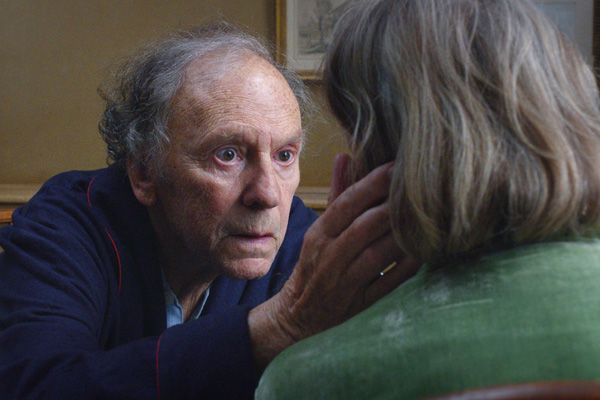The film takes place almost entirely within the confines of the couple’s Parisian apartment. As the film opens, Haneke shows their comfort and ease with each other through mundane routines, with a lingering sense of dread hanging over the proceedings. After an unsuccessful operation, Anne’s condition deteriorates, and Georges tends to her every need. Haneke bares all – Anne’s muddled conversations, attempts at suicide, refusal to accept treatment – in unflinching detail. The few moments of lightness in the film come from Georges’ enjoyment of music (they were both music teachers) and his humoured approach to his wife’s disability (“It’s all terribly exciting,” he quips to his estranged daughter).
While it’s refreshing to see a romance between two seniors done with such realism, the seemingly endless scenes of Anne’s treatment may prove too much for some. Those who have endured this sort of experience with a loved one are advised to stay away, as are those offended by senior nudity. Likewise, Haneke’s clinical approach to the film – we are not offered any flashbacks, and few scenes of actual closeness between the couple – may be too cold for some viewers. Ultimately, brutal though Amour may be, the realism created by the veteran French actors, and the depiction of old age’s indignities is very powerful. Given the subject matter, it’s appropriate how scary Amour is.
4/5



